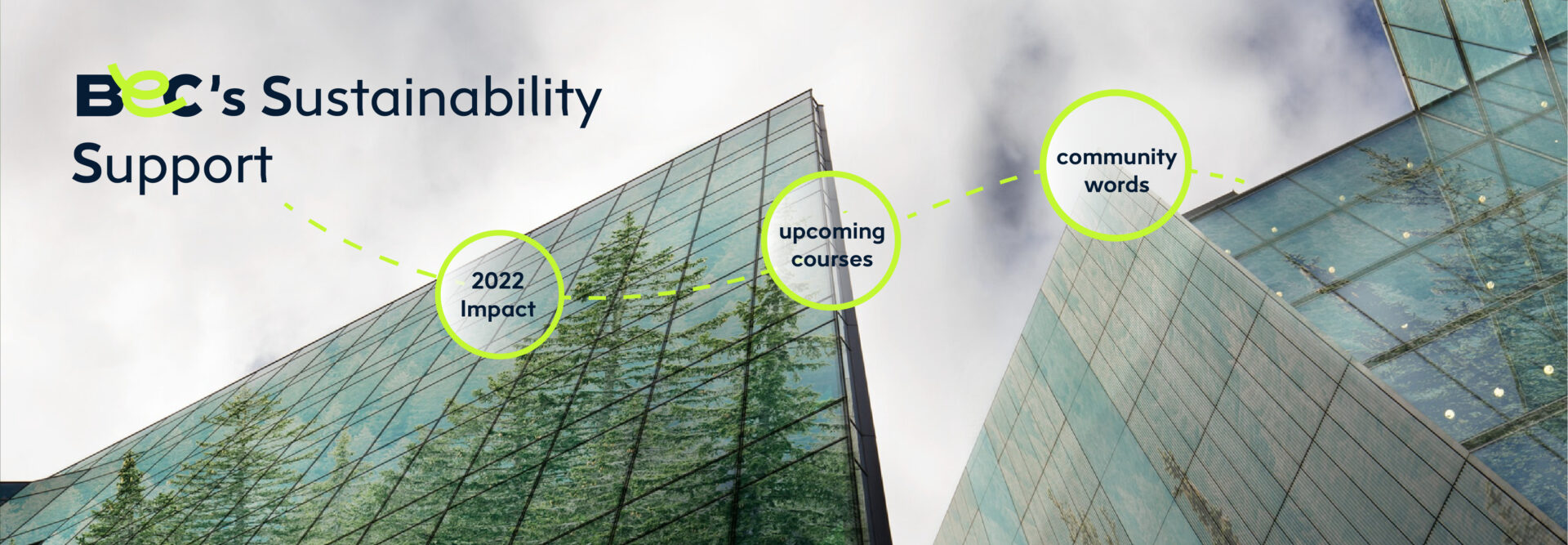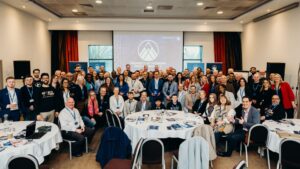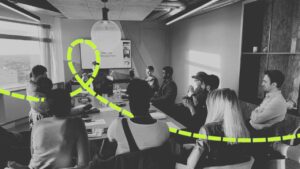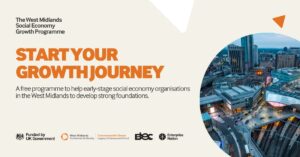Is “sustainability” being used by start-ups and entrepreneurs as a catch-phrase for better promotion and marketing without real integration? There is a common misconception of what it actually means among the business world and more commonly than not it is a very basic level of understanding without real change being made from the beginning of the product research stage or the pre-start stage. Having a sustainable, circular economy and earth-first mindset is vital in ensuring new businesses are ready for the future of the economy.
The existing and upcoming businesses are in desperate need for practical sustainability support. They need real education where they can learn how to start integrating Sustainability & the Circular Economy principles into their core supply chain, operations and business model. Not only this, but we need to also educate businesses on sustainability and its importance for our human existence, and what is really happening with the climate crisis and the affects this will have on business and the future availability of resources. However, not everyone is able to afford this invaluable knowledge, not everyone can afford to employ sustainability experts, in fact, most of the businesses that have established sustainability teams and “CSOs” (Chief Sustainability Officers), are the ones causing the major harm to our resources. They use this individual to wash their face of their harmful practices to merely publicise and glorify their sustainability work that is incomparable to the harm they are really causing on a deeper level. . A great example of this is Coca-Cola sponsoring COP27 and dictating its narrative while they are the world’s biggest plastic polluter (Break Free From Plastic, Brand Audit)
As startups, entrepreneurs and innovation supporters we must prevent the creation of any new products or services that will in the future have a negative impact on the environment and lead to further waste of resources and efforts to reduce or eliminate the damage that is done already. We think too short-term, our current business models think maybe 5-10 years ahead, but that isn’t an example of a sustainable business model. If we look at the invention of the car for instance: cars were invented in 1886 and now only 150 years later we are still trying to fight back the damage that they caused. How can we make sure that no new inventions will be introduced to the market that will cause damage we then have to find solutions for in another 150 years from now? It is only by educating the early-stage businesses and innovators on how to consider the environment and wider societal impacts at the early stage of their work so no harm is caused in the future, when it’s too late to reverse the damage they have caused.
Since 2020,we have wanted to have an impact in this area, with early–stage businesses and professionals as well as to help them understand sustainability beyond just the usual raising awareness about it. At the start of this year, we got the opportunity to do so through practical Sustainability & Circular Economy courses we delivered as part of the GLIDE programme funded by ERDF and Buckinghamshire New University. Due to the demand from business from the first course we then conducted a second cohort learning lessons from what businesses needed from the first course.
Run by business owners and sustainability professional, these Sustainability & Circular Economy courses were designed to deliver what the businesses really need in terms of sustainability, making them relevant to the modern market and business requirements, which allowed those who participated to take immediate action on making their operations and strategies aligned with the sustainability & circular economy principles while ensuring efficiency and profitability in their businesses. Within a few months through this initiative, we have engaged with and supported over 315 entrepreneurs and professionals, 91 of whom are business owners. The project also includes engaging with and supporting 92 entrepreneurs in Circular Fashion Design. These numbers show you how much the SMEs and entrepreneurs are looking for this support when it is offered and delivered to them in the right way. We have also delivered the THINK, MAKE, DO sustainability course for STEAMhouse as part of their work towards sustainability with their members and surrounding communities.
We don’t want to just stop here, we are aiming to support even more in 2023. So we partnered with Coventry College to provide Green Skills training for professionals who are aiming to enrich their knowledge in sustainability so they can make changes within their own organisation or further develop their skills to be in a better position in their professional career where they can actively contribute to the sustainability strategies and agenda. If you are a professional based in the Midlands and would like to access this funded support, then register your interest here, once registered your interest the team will be in touch soon. Also if you would like to get sustainability training as part of your access as an employee to professional development, we have our CPD-accredited course for professionals who want to explore or grow a career in sustainability. The following pillars are the focus of these upcoming courses:
- Understand the wider context of climate change, sustainability and how it relates to business now and in the future.
- Investigate different actions that can be taken, with an understanding of the potential of technology and innovation to enable sustainable practices.
- Define and explore stakeholders, and find reasons for collaboration.
- Develop integrated sustainability strategies and ensure their implementation.
- Lead on articulating sustainability, and driving change.
- Explore the importance of communication, internally and externally.
Finally, a big Shoutout to Maddie Booth, who joined BEC’s team this year as our Sustainability & Green Skills Lead to ensure the appropriateness of the course content and facilitate the delivery alongside the amazing speakers and experts who contributed to it. Also massive thanks for the great teamwork and support, to Nadine Frisk and Charlie Edge from GLIDE team at Buckinghamshire New University which provided the needed funding to make this impact possible.
If you would like to know more about the sustainability support at BEC, its design and delivery, please check our website here or feel free to reach out to us. Also, here you can register your interest in our upcoming sustainability courses so whenever we have a new one, you will be first to receive details. Finally, we are learning as much as possible about how much sustainability is integrated within the accelerator and incubator support in the UK, so if you are on one or have been on one before, we would appreciate it if you can tell us what you think through the form here.
Some of our community words that make us proud and motivated to do more:
“I now feel confident talking to businesses about sustainability and the circular economy. I also know how to grow my business in an environmentally sound way” Kaz Bishop, Founder at Green Up Britain
“This is a friendly non judgemental course which focuses on learning and gives you access to real experts. The course facilitator Maddie is fantastic – a true professional who seamlessly runs things and includes people.” Francesca (Fran) Nolan, Founder & Managing Director at Tribera
“This course has made me appreciate that there were so many more aspects to sustainability that I hadnt heard or thought of before, its really widen my prospective both as an individual and a entrepreneur, not only that it has really deepened my understanding further of the circular model and the problems being currently faced as we try to make it more mainstream” Abel Akale, Founder of ONOFFNATURE.
“This course made a huge impact because it helped identify how to calculate our environmental impact and also how to improve this. I did not know about linear and circular economy and now i do it allows me to adapt my business model” Christina French, Founder of Divers Spark and ESSENCH Cosmetics ltd.
“Very comprehensive course. Suitable for people starting to think about sustainability in business but also for more advanced businesses.” Beate Pesian, Business Consultant
“Course has been designed intelligently for people coming from various backgrounds. I was able to learn about circular economy in more depth” Gurpreet Singh, Cognitive research on Sustainable Consciousness.
“The course was a great opportunity to expand my knowledge on sustainability, learn implementation practices from active actors in the subject and networking with like minded individuals and companies.” Astrid D’Amelio, Sustainability Lead | International Affairs | ESG.
“Loved the 3rd week where we really dug into practical aspects on implementation and transformation frameworks.” Elissa Grey, Strategy & Business Transformation Advisor
“This is the best sustainability course I have been on. The course leaders and the invited guests had excellent theoretical knowledge, but more importantly practical knowledge that seemed to resonate across many different business sectors. I’d definitely recommend it.” Daniel Boulger, Head of Venue Partnerships at NEC Group.



